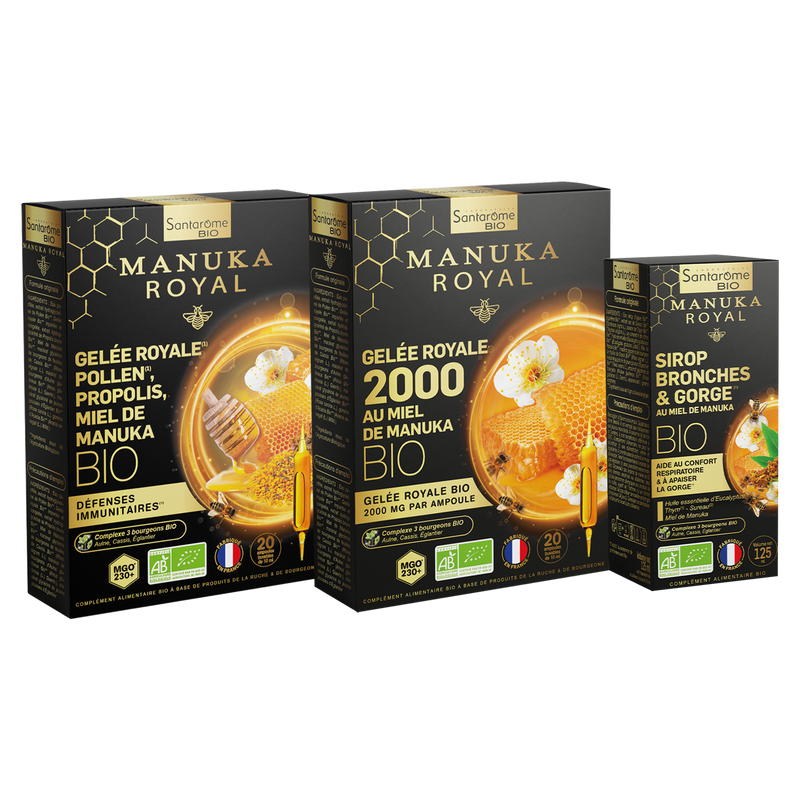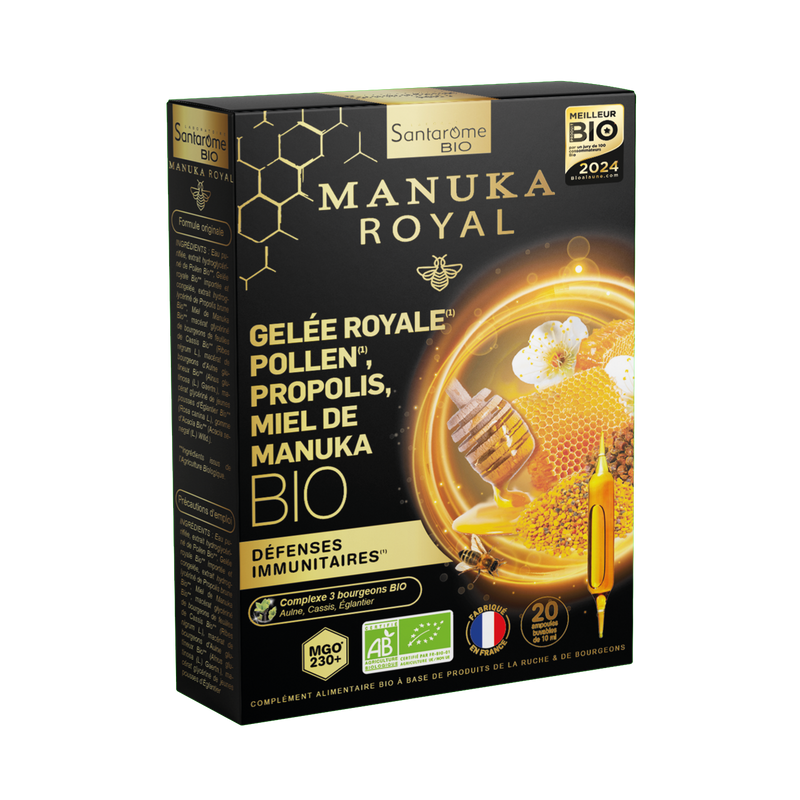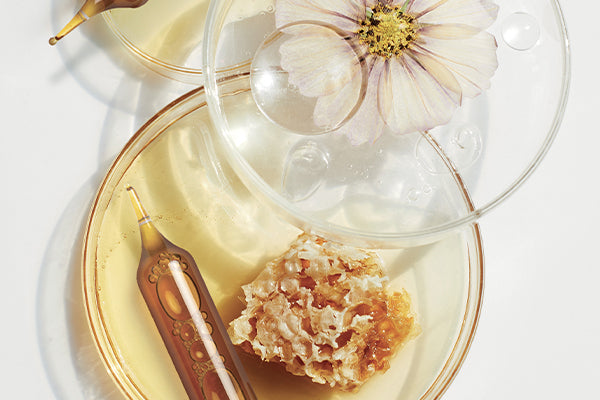The benefits of Manuka honey
Write the 08/02/2023 by Santarome Bio
The origin of the nectar of the gods: Manuka honey 🌺
Manuka is a species of shrub endemic to New Zealand. The Maori Indians quickly became interested in this wild shrub, which is very present on the island. Its flowers and foliage are particularly fragrant, and it is also very resistant to extreme climatic conditions.
Its flowering period is very short, lasting less than six weeks. If climatic conditions permit, bees come to gather nectar from its small white or pink flowers.
The Maori mainly use the leaves and bark of Manuka to treat colds and urinary infections. But Manuka is also used to facilitate the healing of sprains, fractures and to heal wounds.
It was only in the 1980s that the properties of Manuka honey were studied. Today, Manuka honey represents 0.09% of global honey production. This unique honey is universally recognized as one of the best in the world for health.
Manuka honey is more expensive than other honeys because its harvest is limited, in particular it must be stored under very specific conditions. Its high price is also due to the fact that it is imported from New Zealand.

The composition of Manuka honey
What makes Manuka honey so unique is its high methylglyoxal content. Generally speaking, honey is made up of about 80% sugars and 17% water. The remaining 3% corresponds to:
- Enzymes secreted by bees to transform nectars into honey.
- Various compounds of plant origin.
- Minerals, vitamins and other antioxidants.
In hive nectars, Manuka honey is a product in its own right, it contains:
- 80% natural sugar.
- 17% water.
- High content of MGO and plant substances.
- Gluco-oxidase and enzymes secreted by bees.
- Amino acids and organic acids.
- Minerals.
- Vitamins B and C.
During its maturation, the dihydroacetone contained in Manuka honey is transformed into methylglyoxal. This compound present in Manuka honey has a concentration up to 100 times higher than other honeys. 70% of the pollen content must come from Manuka to obtain the designation “Manuka honey”.
Properties and benefits of Manuka honey
Manuka honey has established itself in herbal medicine thanks to its antibacterial and healing action. It is effective in all circumstances, but Manuka honey is mainly known for:
Protect against oral infections.
Fight against stomach aches.
Boost immune defenses.
Its antibacterial properties.
It therefore has unique nutritional and therapeutic virtues. Unlike other honeys, Manuka honey is rich in methylglyoxal (MGO). The higher this index, the stronger the antibacterial properties.
The flavonoids in Manuka honey help fight against skin aging. Applied as a mask, it cleanses the pores of the skin. It is an ideal beauty partner for treating an inflamed pimple, resolving it and promoting its healing.
Dosage of Manuka honey
For optimal use, Manuka honey should be stored in a dry, cool place.
For internal use, take 2 to 3 teaspoons of honey in the morning and evening before a meal. For curative or preventive purposes, it can be used in a hot drink or on toast. Manuka honey-based lozenges help relieve sore throats or sinus problems.
For external use, it can be found in spray, infusion or hand cream.
Orally, it is recommended for:
- Help the respiratory system.
- Help digest.
- Prevent seasonal illnesses.
- Treat coughs and sore throats.
- Strengthen the immune system.
- Promote sleep.
- Prevent cavities.
Externally, it is recommended for:
- Relieve burns.
- Heal wounds.
- Soften sunburn.
For a beauty routine, it will allow:
- Lip hydration.
- A purification of the skin.
- To fight acne.
- To nourish the hair.
Manuka honey is used whenever it is necessary to strengthen the body. In New Zealand, it is used in hospitals to fight the bacteria: staphylococcus aureus.
Precautions for using Manuka honey
This exceptional honey seems to have only good sides, however, people allergic to bee stings should be careful when consuming this honey.
This honey has a moderate glycemic index (54-59), for diabetics, its consumption should not be banned, but moderated. You must therefore be vigilant and consult a doctor.
In case of hypertriglyceridemia, its consumption is not recommended.
Providing energy and vitamins, Manuka honey can be consumed during pregnancy.
Like many other natural products, its effectiveness is proven by the experience of many people, but its use should not replace medical treatment.

















